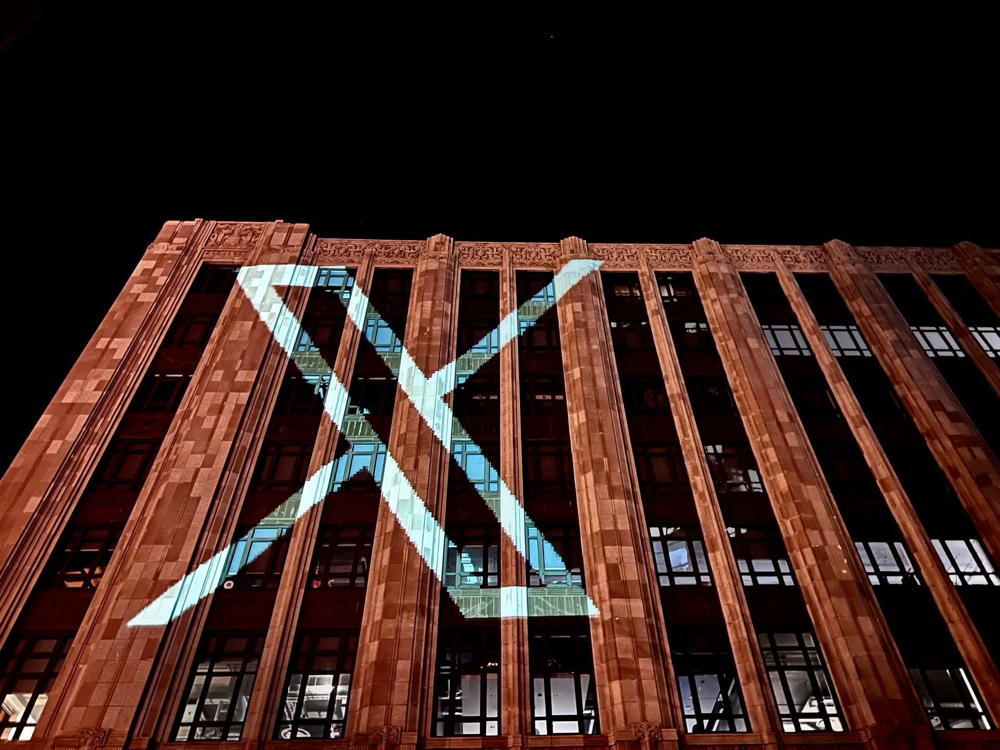

Image credit: Elon Musk/X/Twitter
The European Commission has launched its first investigation under new digital content rules with a probe into a suspected failure by X, formerly Twitter, to fight against disinformation and content manipulation.
The inquiry, announced on Monday, is the first under the Digital Services Act (DSA), which received final approval last year and came into force this year, imposing strict rules on the largest online platforms.
Internal market commissioner Thierry Breton said the Commission suspected X of breaches of its transparency obligations and its duties to counter illegal content and disinformation.
He said the probe would also look into whether X’s blue checks for paying subscribers constitutes a “deceptive” user interface design.
X said it “remains committed to complying with the Digital Services Act and is cooperating with the regulatory process”.
“It is important that this process remains free of political influence and follows the law,” the platform stated, adding that it is focused on “creating a safe and inclusive environment for all users on our platform, while protecting freedom of expression”.
The Commission said its preliminary investigation was based on an analysis of a risk assessment report submitted by X in September, an X transparency report published on 3 November and the firm’s replies to a formal request for information “which, among others, concerned the dissemination of illegal content in the context of Hamas’ terrorist attacks against Israel”.
Companies found in breach of the DSA face fines of up to 6 percent of their global annual revenues.
The formal proceedings are to focus on X’s compliance with its duties to combat the dissemination of illegal content in the EU, the effectiveness of its steps to fight information manipulation and its transparency measures.
The probe into X’s blue checks follow a repurposing of the marks, which formerly denoted authentic accounts used by high-profile users.
Under Elon Musk the meaning of the marks has shifted to identify paying subscribers to the X Premium service.
In mid-October, following Hamas’ 7 October attacks on Israel, Breton sent formal letters to X, Meta and Tiktok reminding them of their DSA obligations to remove harmful and illegal content.
“I remind you that following the opening of a potential investigation and a finding of non-compliance, penalties can be imposed,” Breton wrote.
The platforms quickly responded to Breton, outlining the steps they had taken, but Musk also challenged Breton over the warning.
X was the only social media platform to be sent a further formal request for information under the DSA and has responded to the request.
The probe follows a separate complaint last week by privacy activist Max Schrems in which he alleged X violated EU GDPR rules by targeting ads based on people’s political views and religious beliefs.
So long Skype, as Microsoft confirms retirement of former VoIP giant, in favour of its…
Plan to reduce the number of Openreach's legacy telephone exchanges is updated, with closure process…
'Buyouts' offered to staff in Google's human relations unit in US, after reported layoffs in…
Scale of ransomware threat confirmed in new report from BlackFog, as attacks reached record-levels in…
Fix and apology from Meta Platforms, after users report violent, graphic videos in their Instagram…
Amazon Web Services says new quantum computing chip Ocelot is a breakthrough in building fault-tolerant…